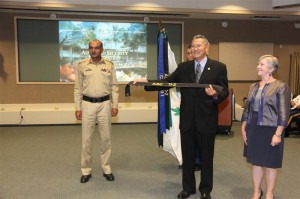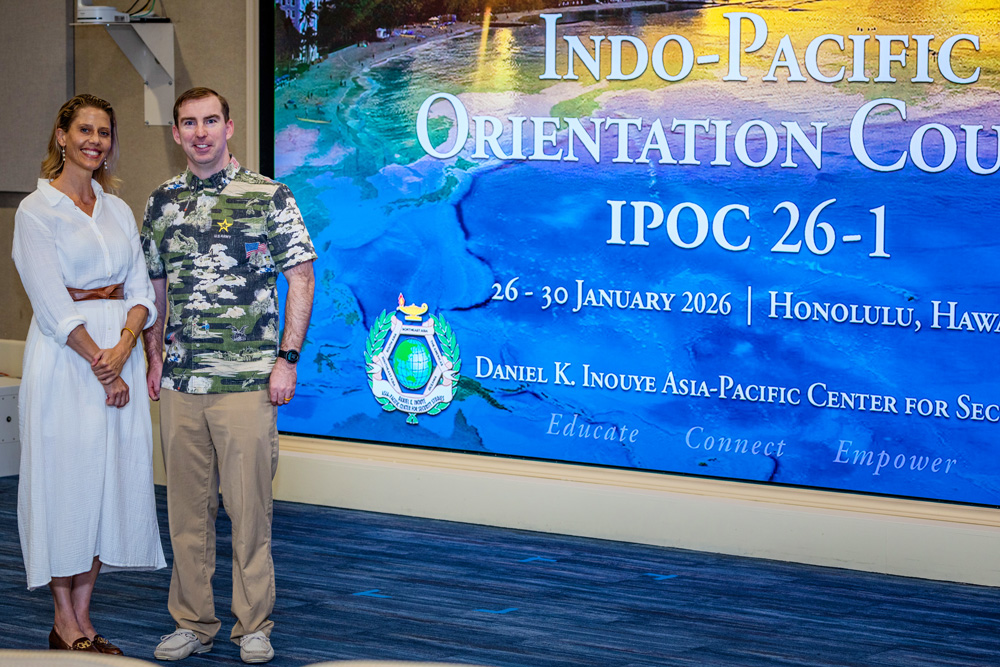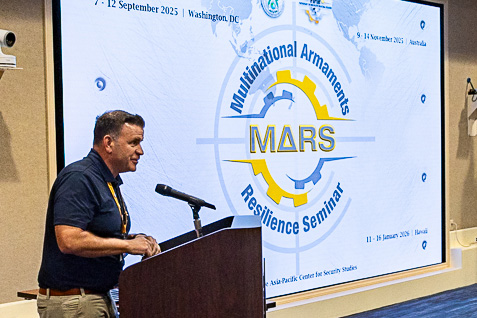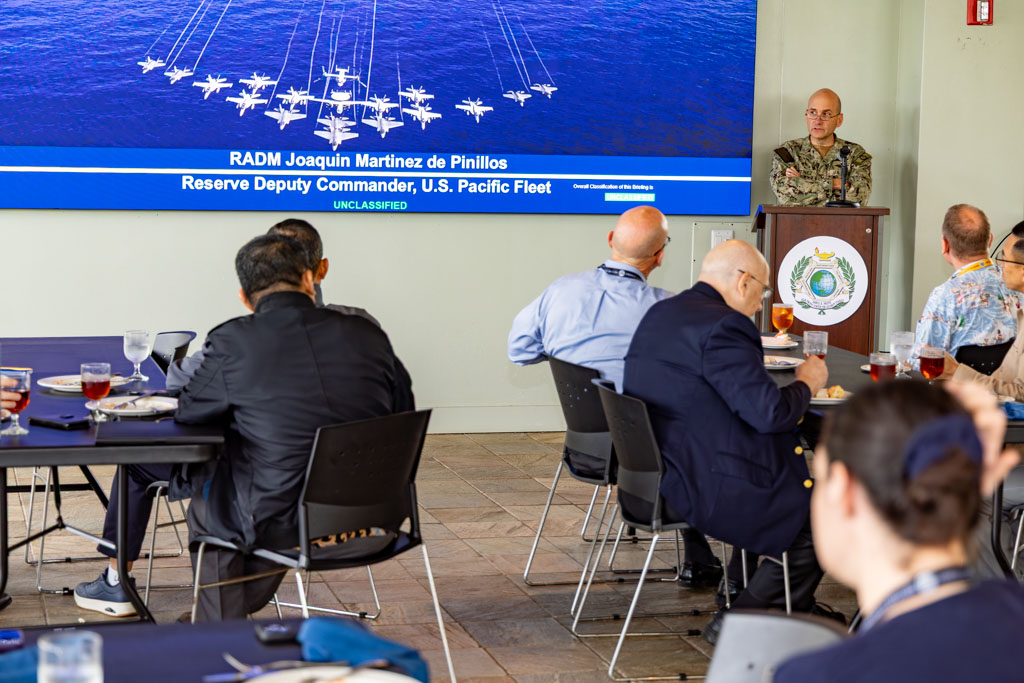
- Acting Director Brig. Gen. (Ret.) Jim Hirai receives the streamer for the APCSS flag from Gen. Muhammed Amer Goraya of Pakistan
HONOLULU – Seventy-three senior military and civilian government leaders from 30 countries and territories graduated October 12 from the Asia-Pacific Center for Security Studies “Executive Course: Advanced Security Cooperation.”
Attending the regional security course were representatives from: Australia, Bangladesh, Bhutan, Cambodia, Canada, Chile, China, Fiji, India, Indonesia, Japan, Malaysia, Maldives, Mauritius, Mongolia, Nepal, Pakistan, Papua New Guinea, Philippines, Republic of Korea, Russia, Singapore, Sri Lanka, Tanzania, Thailand, Tonga, Turkey, Uruguay, United States, and Vietnam. The newly reformatted four-week Executive Course focus is on building relationships among mid-career leaders and decision makers within the region. Its curriculum emphasizes the non-war fighting aspects of security and international relations, and challenges Fellows to develop regional and transnational perspectives. Security is examined as a comprehensive mix of political, economic, social, military, diplomatic, information and ecological dimensions.
Course Coordinator, U.S. Navy Commander Christopher Van Avery was especially impressed with the how well the fellows bonded, their level of interactivity, and how quickly they grasped the concepts and opportunities that were presented to them. Also, noting the five fellows from China in this class, that it was very beneficial to have that many voices presenting the country’s insights and perspectives.
The Asia-Pacific Center for Security Studies is a Department of Defense academic institute that addresses regional and global security issues. Military and civilian representatives, most from the U.S. and Asia-Pacific nations, participate in a comprehensive program of executive education, professional exchanges and outreach events, both in Hawaii and throughout the Asia-Pacific region. APCSS’ mission is to educate, connect, and empower security practitioners to advance Asia-Pacific security.
The Executive Course students discussed national policy, and how the economic, diplomatic, political, cultural and military elements of power affect stability and security of the region as a whole. To date, the Asia-Pacific Center for Security Studies has had representatives from 99 countries and four international organizations attend the courses at the Center for a total of 6,057 alumni.
-End-









Leave A Comment